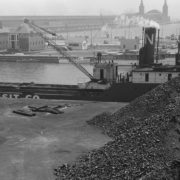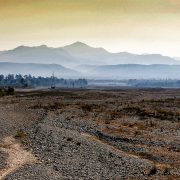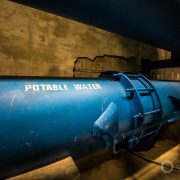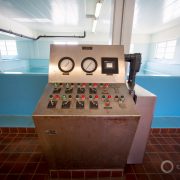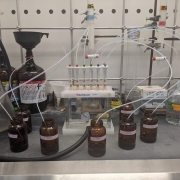Gina Lopez, a “Crusader,” Sets Philippines Water, Mining Safety on Unexpected New Course
New environment secretary vows to enforce rule of law.
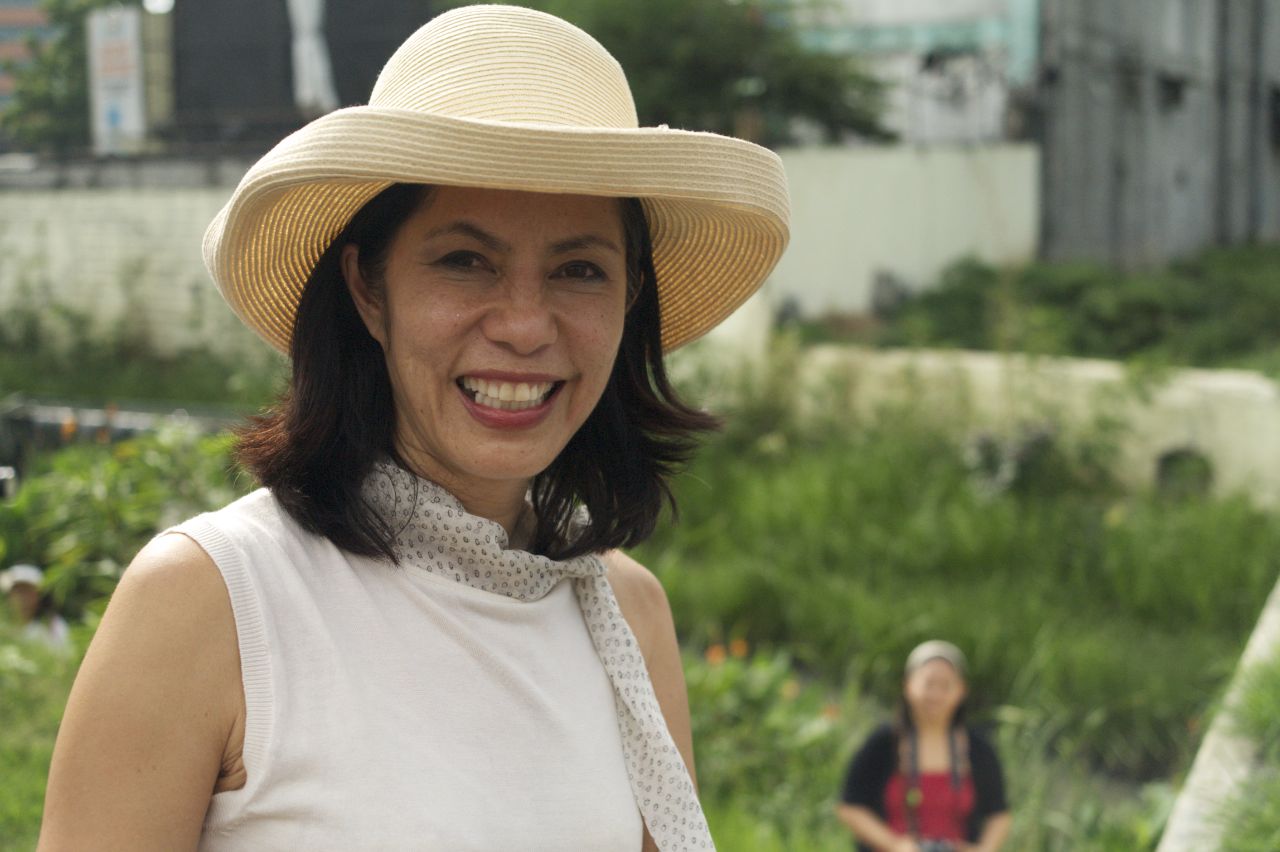
Gina Lopez, the new Philippines environment secretary, enters her office with a mandate from President Rodrigo Duterte to enforce mining regulations and protect natural resources. Photo courtesy of bbcworldservice
By Keith Schneider, Circle of Blue
Before Regina Lopez agreed in June to serve as the secretary of the Philippines Department of Environment and Natural Resources, her standing as one of the Pacific island nation’s determined environmental activists was unchallenged.
As the top executive of the foundation established by her family’s big media company she organized courageous campaigns to safeguard water, forests, and coastal areas from mining and logging in a nation where 88 environmental activists were murdered from 2010 to 2015. One of the victims, Gerry Ortega, was a close friend who was killed in January 2011 while he and Lopez worked to defend the island of Palawan from several proposals for big new mines.
At the same time as the mining campaigns, Lopez led a national project to clean up portions of the desperately polluted Pasig River, which flows through Manila, the capital.
And four years ago, after the chairman of the country’s largest mining company publicly accused her of lying about environmental damage from hard rock mining, Lopez stood her ground at a well-attended industry conference and impassively offered unassailable facts to support her view. The confrontation between the slim, serene environmentalist and the red-faced industrialist was videotaped, and attracted national headlines. (See 8:03 of this YouTube video.)
It also impressed Rodrigo Roa Duterte, the longtime mayor of Davao City who won the Philippines presidential election in May on an internationally notorious “change is coming” message to battle crime, corruption, illegal drugs, and environmental degradation.
Duterte was not joking. The flamboyant president, who has gained international attention for waging a bloody campaign against drug trafficking, met with mining executives before election day to issue a warning. He told them that if he won, his administration was prepared to rein in the industry’s rapacious practices with much stricter regulatory enforcement. “Just take care of the environment,” he said.
Philippine mines are among the world’s biggest suppliers of gold, copper, and nickel. The mining industry is an important source of foreign revenue in the fast-growing nation of 102 million people, and it employs 235,000 workers. The industry has a dismal record, though, of polluting water, disturbing land, and managing wastes. Three times since 1995 the dams containing big ponds of toxic mine tailings collapsed, pouring millions of tons of debris into Philippine rivers and forcing the evacuation of thousands of people. Environmental enforcement has been weakened by endemic payoffs and corruption, according to government reports.
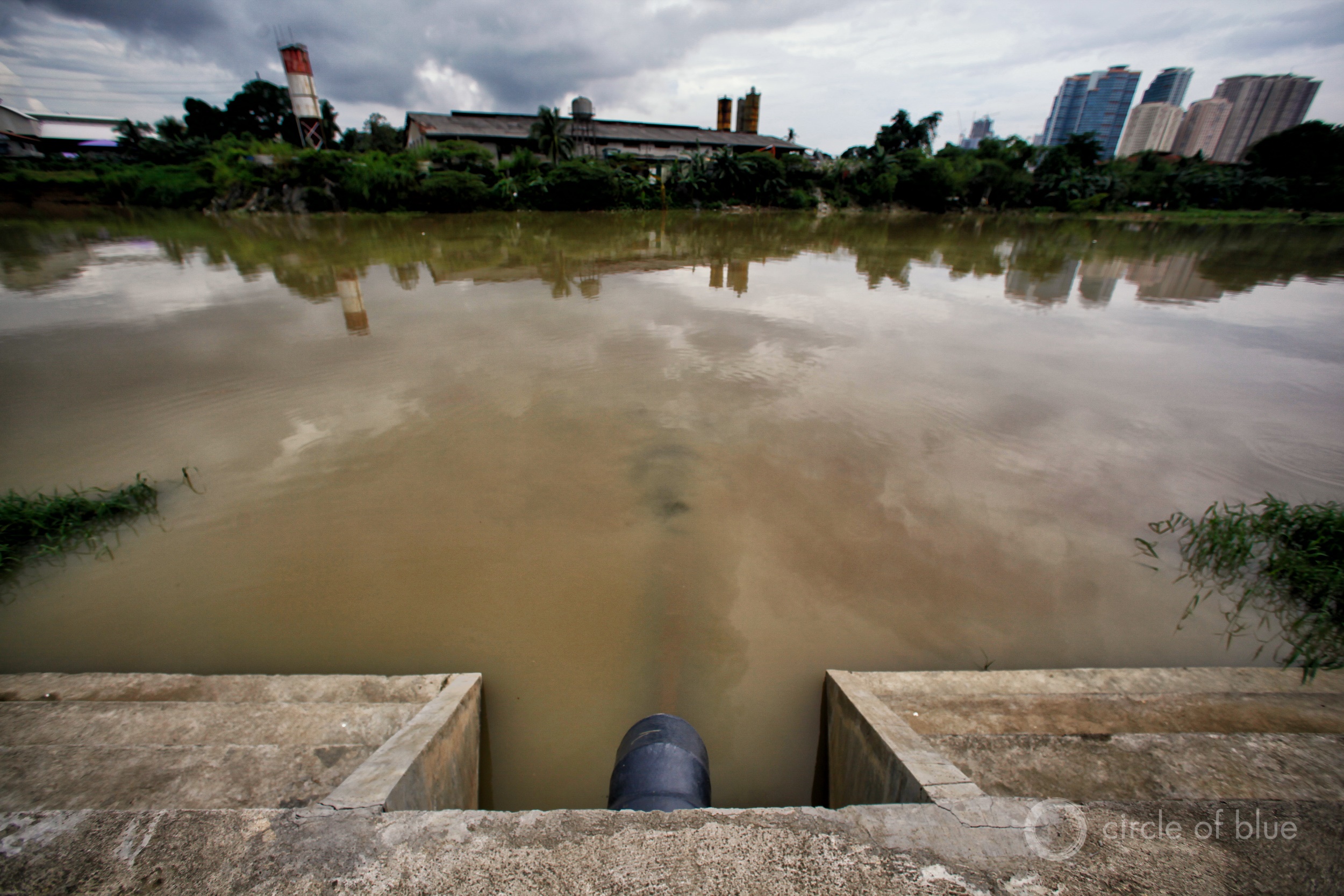
The Pasig River flows through Manila, capital of the Philippines. Before being named the country’s environment secretary, Gina Lopez led a campaign to clean up the Pasig. Photo © J. Carl Ganter / Circle of Blue
In recruiting Lopez to his administration, Duterte pledged to back her work with the support of national police and military units. A week after his inauguration on June 30, Duterte appeared at a meeting of mining executives to support his new environment secretary, and to issue clear guidelines for what he expected of the industry.
He said companies should plant trees and prevent chemical contamination that wrecks ecosystems. He gave notice that his administration would close mines that violated the law. “When you’re spoiling the land, I’ll cancel the permit without hesitation. That’s the bottom line,” Duterte warned.
Such direct environmental mandates are rare in developing nations. Indonesia’s coal mining sector, for example, operates with such flimsy government oversight that miners are regularly injured or killed, and children drown in the deep waters of abandoned pits. India’s coal mining region in Meghalaya, a northeastern state, was shut down by a national court in 2014 after state and national government regulators showed themselves utterly incapable of preventing mine accidents and deaths, or curbing rampant acid mine water pollution. South Africa does not rigorously enforce its mine reclamation regulations. The hills and free-flowing streams of the coal region in KwaZulu-Natal are marred by the black sores of eroding abandoned mines and the contaminated waters that drain from mine mouths.
New Direction for Philippine Mine Industry
Duterte and Lopez say they are determined to tilt the Philippine mine industry in a different direction. On July 1, a day after taking office, Lopez acted on her mandate. The Department of Environment and Natural Resources (DENR) made public its campaign to audit the environmental performance of the country’s big hard rock mines. Lopez promised to enforce existing water quality and land conservation measures to halt the outlaw practices. “If they are killing our rivers, how can their business interest be more important than the lives of our people? I will not allow suffering,” said Lopez. “The main thing is that whatever we do, the welfare of the people must be paramount.”
Leaders of the country’s gold, copper, and nickel mining industry, accustomed to fawning government support, feel like they’ve been struck by a swarm of bees.
In late July, prompted by results of the audits, Lopez ordered the closure of four mines for various violations of land, water quality, and air emissions standards. In early August she ordered four more mines to be shut down. The shutdown orders are under appeal by mining companies and the mines continue to operate. The prices, though, for mining shares on the Philippines Stock Exchange plunged.
The Chamber of Mines of the Philippines has pushed back against Lopez’s critique of their industry, especially her view that the poorest areas in the Philippines are mining areas.
“We do not cause suffering in areas where we operate, contrary to Lopez’s belief. In fact, we ease such suffering by complementing the government’s delivery of social services and by implementing our environmental protection and enhancement programs,” Nelia Halcon, the Chamber’s executive vice president, said in a statement to reporters.
The Chamber’s view is not shared by most observers. The Manila Times, an important newspaper, called Lopez’s appointment a “masterstroke.” Philippine environmental organizations are thrilled. “We wish Ms. Lopez to be the spark that will stop the reign of corporate mining, coal power, and other vested big business interests in the DENR,” Kalikasan, a major environmental group, said in a statement. “Her resolve, experience and stand for the environment will be an important contribution to the incoming Duterte government’s shaping of a regime that will diverge from the anti-people, anti-environment pathway of the past Aquino administration.”
Fast Start for Regulator Who Promises More Environmental Scrutiny
Born into the family that owns and manages ABS-CBN Corporation, the largest entertainment and media conglomerate in the Philippines, Lopez took a distinctive path to the top of the country’s environmental policy and enforcement infrastructure. As a young woman she dropped out of Newton College of the Sacred Heart, near Boston, to become a yoga nun dedicated to self-realization and service to humanity. A divorced mother of two sons, she describes herself as intensely spiritual. She meditates 90 minutes a day. Her devotion to nature and communities developed during years of living in villages in India, Kenya, Zambia, Ghana and Nigeria.
Her goal, she has told interviewers, is to end poverty in the Philippines by replacing some of the country’s industrial resource development with less damaging tourism, “especially in the places which are beautiful. In these places agriculture and eco-tourism is the way to go.”
As the chairperson of the ABS-CBN Foundation, Lopez supported a number of successful eco-tourism projects that employed hundreds of villagers. She also understood politics. She endorsed Duterte for president early in his campaign.
As chief of the Philippine environment agency, Lopez is making a very fast start. In early August she signed agreements with the police and the military to ensure the safety of her staff in carrying out enforcement measures. She alerted the timber industry that its practices are under review. And she set her sights on more thoroughly evaluating the mining permits that previous administrations approved for big open-pit operations that have not started on the Philippines’ biggest islands. All of those proposed mines threaten forest and coastal villages, and a treasure trove of world-class wildlife, forests, clean rivers, and seashore reserves, according to various studies by universities and environmental groups.
The largest pending project is the $US 5.9 billion Tampakan open-pit copper and gold mine proposed on Mindanao, a southeast island. The company says the project will span roughly 10,000 hectares (24,700 acres), operate for two decades, and produce 375,000 metric tons of copper concentrate and 360,000 ounces of gold concentrate annually. The mine plan has generated fierce public protests prompted by its size, and the consequences for damaging forests, farmland, and water. Some 5,000 villagers would need to be removed from their lands.
The previous administration, led by President Benigno Aquino III, approved the project’s environmental compliance certificate in February 2013. According to Philippine mining law, the certificate is issued to projects that “will not bring about an unacceptable environmental impact.” Neighboring villagers hold a much different view. In 2012, and again in 2013, security forces opened fire during big and fierce demonstrations to oppose the mine. A woman and two sons were killed in the first incident. A tribal leader and his son were killed in the second.
Lopez says she will stop the mine’s development. “Open-pit mining? It’s horrible,” Lopez told reporters in July. “Tampakan is on top of hundreds of hectares of agricultural land, the food basket of Mindanao, and you want to put an open-pit mine the size of 700 football fields? I don’t care how much money they give us. It’s not worth it. Who is making the money here and who is taking the risk?
“It’s immoral,” she added. “It is socially unjust to allow businesses to make money and put all lives of farmers and indigenous peoples there at risk.”
The Duterte administration is not yet two months old. The Philippine industrial sector’s response to Lopez’s aggressive start has not emerged. It will.
Her most important ally, though, is convinced he offered the job to the right person.
On July 25, in Duterte’s first State of the Nation Address, the Philippine president commended Lopez. “Many are complaining against the appointment of Gina Lopez,” he said. “But we share the same paradigm. The interest of the country must come first. There’s a law allowing mining. Gina Lopez and I are just telling you: Follow government standards. Do not destroy the environment. Follow it to a tee. Just pay the correct taxes, follow the standards. Gina is just doing her job. You know, she’s a really a crusader. That is how I describe her persona: Crusader.”
Circle of Blue’s senior editor and chief correspondent based in Traverse City, Michigan. He has reported on the contest for energy, food, and water in the era of climate change from six continents. Contact
Keith Schneider



